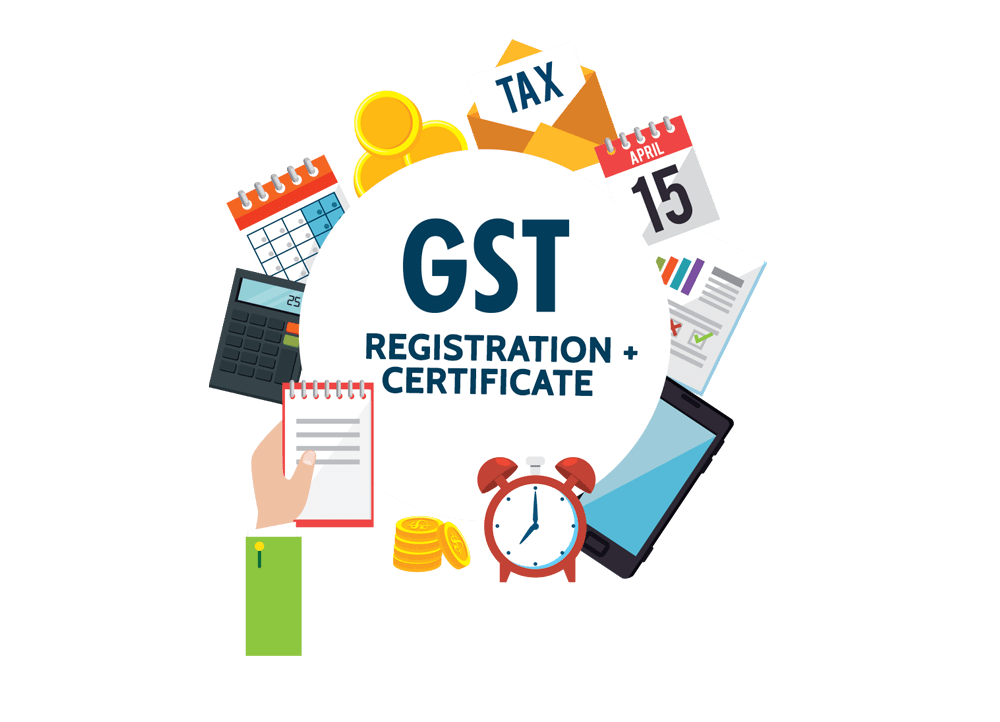Professional Tips for Picking the most effective GST Registration Services in Singapore
Professional Tips for Picking the most effective GST Registration Services in Singapore
Blog Article
From Begin to End Up: The Ultimate Roadmap to GST Registration for Services Seeking Financial Security
Navigating the intricacies of Product and Services Tax Obligation (GST) enrollment is an important step for services striving for monetary stability. Breaking down the roadmap right into convenient actions can simplify the enrollment journey for companies looking to improve their monetary standing.
Understanding GST Essentials
Delving right into the basic concepts of Goods and Solutions Tax Obligation (GST) is necessary for acquiring a thorough understanding of its ramifications on companies and the economic situation. Input Tax Obligation Credit (ITC) is a considerable feature of GST, enabling companies to declare credit score for taxes paid on inputs, minimizing the general tax obligation concern. Recognizing the essentials of GST is critical for businesses to comply with tax guidelines, manage their finances effectively, and add to the country's economic growth by taking part in a clear tax obligation system.
Eligibility Requirements for Enrollment
To sign up for GST, companies must fulfill details qualification requirements developed by the federal government. The key eligibility demand is that any kind of service associated with the supply of items or solutions with an annual accumulation turnover over the threshold limit established by the authorities have to register for GST. Since the present guidelines, the threshold limitation for GST enrollment is an annual accumulation turn over of 40 lakhs for companies operating within a state, with the exception of unique classification states where the limitation is 20 lakhs. Furthermore, particular services are required to sign up for GST regardless of their turnover, such as interstate suppliers, informal taxable persons, and companies reliant pay tax under the reverse fee mechanism. It is vital for companies to thoroughly examine their turnover and transaction types to establish their GST registration commitments accurately. Failing to sign up for GST when eligible can bring about fines and legal effects, making it vital for companies to stick to the specified qualification criteria.
Files Required for Registration
Having actually satisfied the qualification requirements for GST enrollment, businesses need to now guarantee they have the requisite papers in location to continue with the enrollment process efficiently. The files needed for GST registration generally include proof of business constitution, such as partnership action, enrollment certification, or unification certification for different kinds of organizations. Furthermore, companies need to provide papers developing the primary area of organization, such as a rental arrangement or electricity expense. PAN card of business, as well as the identification and address proof of promoters/partners/directors, are essential for confirmation functions. Checking account declarations, along with canceled cheques or a copy of the bank passbook, are required to confirm the economic information offered throughout enrollment. In addition, businesses need to have digital signatures all set for the accredited notary. Making certain all these documents are organized and readily available will expedite the GST enrollment process, allowing companies to conform with tax guidelines flawlessly.
Step-by-Step Enrollment Process
Beginning the GST registration procedure entails a collection of structured steps to ensure a compliant and seamless enrollment for businesses. The initial step is to go to the GST site and fill in the enrollment type with exact information of the business entity. Following this, the candidate receives a Short-lived Referral Number (TRN) which is made use of to resume the application process if it's not finished in one go.
Next, all required records as per the checklist provided by the GST portal need to be posted. These records usually consist of proof of company address, registration and identity proofs of promoters, monetary statements, and organization entity's PAN card.

Post-Registration Conformity Standards

Verdict
In verdict, businesses seeking economic stability must recognize the basics of GST, satisfy qualification requirements, gather essential records, adhere to the detailed registration procedure, and follow post-registration guidelines - Best GST registration services in Singapore. By sticking to these steps, businesses can guarantee compliance with tax laws and keep financial stability over time
Additionally, particular companies are called for to register for GST regardless of their turn over, such as interstate suppliers, casual taxed individuals, and companies accountable to pay tax obligation under the reverse charge mechanism.Having actually satisfied the qualification standards for GST enrollment, companies should now ensure they have the requisite documents in area to proceed with the enrollment process effectively. The papers needed for GST registration usually consist of evidence of business constitution, such as partnership Home Page deed, enrollment certification, or consolidation certification for different types of businesses. Furthermore, organizations need to supply documents establishing the primary place of company, such as a rental agreement or electrical energy costs.Commencing the GST enrollment procedure includes a series of organized steps to ensure a compliant and smooth registration for services.
Report this page